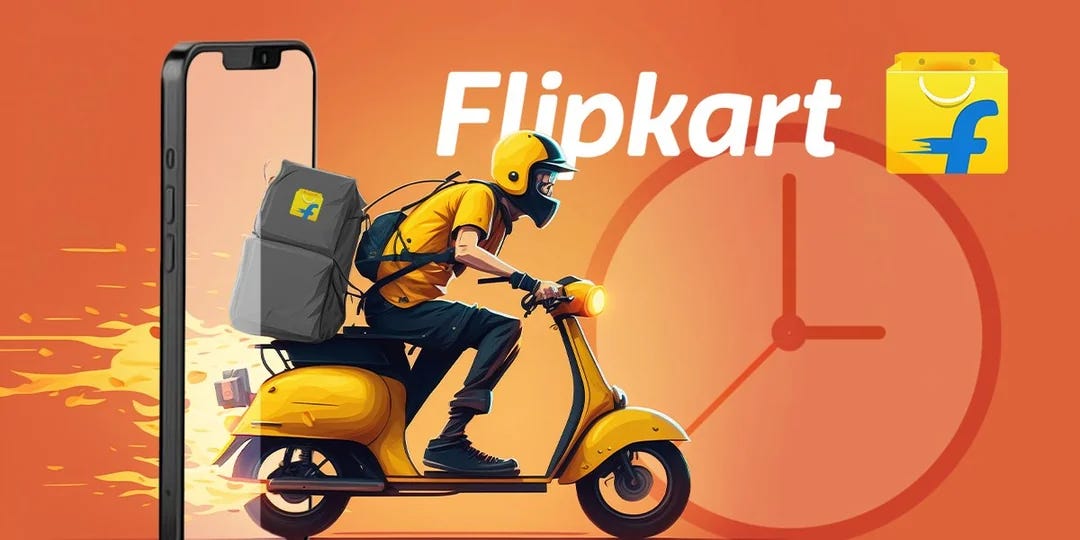FOGG kyu chal raha hai?
Spraying Success: FOGG's Scent-sational Revolution with a Unique Proposition
There might have been a time when, if you asked someone, "Kya chal rha Hai?" the reply would have been, "Fogg chal rha Hai." And this could be the case even if you weren't into perfumes or deodorants as such.
Today's story is about the rise of FOGG, which entered an already cluttered market with established players like Wildstone, Set Wet, and notably AXE, the market leader in the 2000s, especially when it did not bring anything new to the table.
The story behind FOGG’s success and its execution is quite intriguing. It turns out that the man behind FOGG identified a single core problem missing from all other brands and believed it could be leveraged. This conviction led him to build an entire brand around this unique aspect.
Before FOGG's Launch in the Market
Post the year 2000, deodorants gained popularity in India, with brands like Axe, Set Wet, Park Avenue, Wild Stone and Nivea carving a niche for themselves in the market.
However, there was a notable issue; Indian consumers purchasing deodorants desired them to function more like perfumes, seeking products that provided more liquid than just gas. They felt that the existing options didn't offer the right 'value for money.'
While this was not necessarily a significant problem, it was something Indian consumers were not entirely satisfied with.
The problematic nature of Deodorant Advertisements
Despite deodorants being a gender-free category, the market was highly skewed in favor of males. The major reason behind this skewness was the positioning of the product by market players.
Deodorants were often portrayed as sensual products used by men to attract women. Many existing marketing strategies, such as Axe's "Chocolate Man" and "Axe Effect" campaigns, faced criticism for being sexist and objectifying women, potentially contributing to a decline in market share.
The FOGG Effect
In December 2011, Vini Cosmetics unveiled FOGG deodorant, presenting a distinctive value proposition - a "no gas, no wastage" deodorant claiming 800 sprays for an average 100 gm bottle. Unlike other players in the market, FOGG concentrated solely on functional values like ‘no side effects’ and ‘more quantity’, in contrast to the prevailing focus on emotional benefits by other brands.
This approach resonated with the Indian consumer mindset, creating a perception of getting value for money through increased quantity.
Promotion
While other brands relied on sensual advertisements, FOGG generated excitement by introducing straightforward yet innovative campaigns. The memorable slogans like "No gas perfume," "Kya chal raha hai?" and "Aur Kya chahiye" struck a chord with the target market, employing humor and engaging approaches to capture attention, ultimately turning these slogans into a national sensation.
Price
Launching at a price of 180 Rs for a 100 ml bottle, FOGG catered to the cost-conscious Indian market, making it accessible to the middle class.
Distribution
Fogg's presence ranged from small stores to big supermarkets. The founder's previous experience in launching pharmaceutical products facilitated a well-established distribution network.
FOGG's success is a tale of honing in on a core value proposition that addressed consumer dissatisfaction, leading to a brand that could overthrow existing stalwarts. It proves that having the first-mover advantage is not a prerequisite for success.
Before we conclude, here's an intriguing revelation for you: Ever wondered why it's named Fogg? And no, it's not about the weather condition ‘fog’. The actual full form of the brand is, wait for it "Friend of Good Guys/Girls" 😐 Who would have thought right!
Product Insight🧠
News has it that the Indian e-commerce giant Flipkart is gearing up to launch 10-15 minute delivery services in at least a dozen cities within the next six to eight weeks. Reports suggest that they are already in the process of setting up dark stores in cities, including Bengaluru, Delhi-NCR, and Hyderabad. There's even speculation that Flipkart might acquire Dunzo.
Despite existing players in the quick commerce sector such as Zomato's Blinkit, Swiggy's Instamart, Dunzo, and Zepto, it seems everyone is rushing towards quick commerce.
Wait, so wasn't quick delivery just a trend? Weren't many saying that it's challenging to make good money in it?
Let’s get the facts right. Firstly, yes, the revenue of platforms like Blinkit and Zepto has crossed hundreds of crores, but the profits have been meager. The Average Order Value (AOV) is not always enough to incur a profit, especially after expenditures like paying the rider and not to mention the enticing discounts and coupons being given to acquire and retain more customers.
But if you look beyond making money solely through selling products, a different scenario emerges.
Advertisements
Data has become the new gold mine. With users spending a significant amount of time on the platform, their purchasing habits being tracked, it provides an opportunity to run targeted advertisements and gather valuable information for future use.
Cross-selling
There will be a rise in cross-selling to customers based on their preferences and purchase history.
The shift towards cross-selling becomes evident, as seen with platforms like PhonePe. This strategic approach involves offering additional or complementary items to customers, enhancing their experience and increasing the average transaction value.
With these strategies, Flipkart is likely aiming to enter this new space and one thing is for sure, quick commerce is here to stay.
Hiring📢
Product Analyst hiring: https://tinyurl.com/bdhu7dkc
Machine Learning Engineer at Richpanel: https://tinyurl.com/yt8rmzws
Backend Engineer at StackWealthHQ(YC S21): https://tinyurl.com/2v4wt5vv
PM hiring at Razorpay: https://tinyurl.com/3zewuexm







